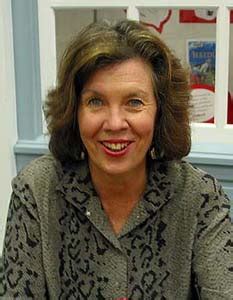A Quote by Alexander Chee
In some ways, in 'The Queen of the Night,' I'm writing about some of the experience that I had with 'Edinburgh' where I was entirely unable to speak about what had happened to me as a child, but I could read from the novel.
Related Quotes
My best experience as a writer was working with Michael Ondaatje. He let me dismantle his novel, reimagine it, and still had dinner with me and gave me good notes. But the best thing about writing has been the writer's life, the sense of being expressed, the ownership of the day, the entirely specious sense of freedom we have, however slave we are to some boss or other. I wouldn't trade it for any other life.
In the case of my second film The Fish Child (El Niño Pez), I had written the novel about 5 years before I made into a film. In the case of The German Doctor I had published the novel a year before I started writing the script, I even had another project to shoot. But I had this idea of the powerful cinematic language from the novel that I couldn't let go of.
People are more willing to talk about child abuse. When this whole McMartin thing went down, I was at a dinner party with about eight people, all from different backgrounds and from all over the world. And every single person at that table had had some weird experience as a child. I think everyone has - whether it was with a babysitter, or playing doctor, but usually when some older person tries to come in contact with you. It's amazing how much we block out.
A screenwriter heard me read from my novel 'The Wishbones' when it was still in progress and mentioned me to some producers in Hollywood. They called, and I told them I had a novel in my drawer about a high school election that goes haywire. They asked to take a look, and my life changed pretty dramatically as a result.
One of the things I do take some pride in is that if you had never read an article about my life, if you knew nothing about me, except that my books were being set in front of you to read, and if you were to read those books in sequence, I don't think you would say to yourself, 'Oh my God, something terrible happened to this writer in 1989.'
The [Booker] prize was actually responsible in many ways for my political activism. I won this thing and I was suddenly the darling of the new emerging Indian middle class – they needed a princess. They had the wrong woman. I had this light shining on me at the time, and I knew that I had the stage to say something about what was happening in my country. What is exciting about what I have done since is that writing has become a weapon, some kind of ammunition.
I really enjoy work to a purpose. Maybe that makes me kind of strange. In some ways - and this is going to sound awful - it could be that writing is the worst job that I've ever had. Because it's so much more important to me and there's so much more opportunity for failure and I have so many people depending on me. In some ways it's the most satisfying, the most gratifying, and the most rewarding job I've ever had. But I actually would say it's probably the worst job I've ever had too.
What I think is important about essayists, about the essay as opposed to a lot of personal writing is that the material has to be presented in a processed way. I'm just not interested in writing, "Hey, this is what happened to me today." You get to a place that has very little to do with your personal experience and talks about some larger idea or something in the culture. I don't think you can get to that unless you have had a lot of time to gestate and maybe if I was taking a lot of notes while stuff was going on, I wouldn't be able to get to that place as easily.
The work saved me. I clung to it like flotsam in a boiling sea. It was the only solitary sport that I ever played, or was any good at. It felt natural to sit at my computer and type and type some more. For entire minutes, while writing, I could forget the godawful thing that had happened. I could forget that nothing really mattered anymore. Perhaps, if I set my sights low, I could care again about some small thing. I would type a word. One word. Then another. I started to care about the words, then entire sentences.
My father was a writer, so I grew up writing and reading and I was really encouraged by him. I had some sort of gift and when it came time to try to find a publisher I had a little bit of an "in" because I had his agent I could turn to, to at least read my initial offerings when I was about 20. But the only problem was that they were just awful, they were just terrible stories and my agent, who ended up being my agent, was very, very sweet about it, but it took about four years until I actually had something worth trying to sell.
I read Herman Hesse's 'Siddhartha' while I was writing 'Lord of Light' along with many other things. It seemed a good time to read it so I could see what he had to say about Buddha. In my first chapter, I was thinking in terms of the big battle scene in the 'Mahabarata.' It helped me in visualizing the battle in my novel.






































